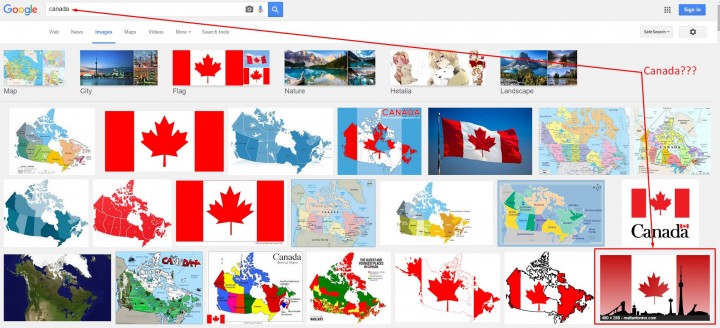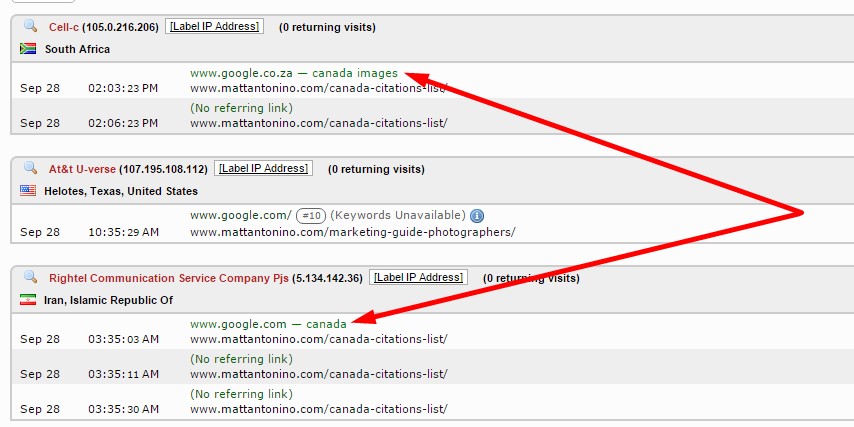
Why Good SEO Keyword Selection & Optimisation Matters
Note: Some of the words, topics and ideas in this post may attract search traffic from people who are depressed and need help. If this is you & you’re in Australia please call Lifeline at 13 11 14 or in the US dial 1-800-273-8255 for the Suicide Prevention Hotline.
Recently we were asked why we track specific keywords and why we don’t “just rank my whole site” by a potential client. Around the same time we were also hit at the same time with an unexpected fortune on Google. Our traffic skyrocketed but conversions and sales remained at fairly steady growth.
These two situations are connected by keyword optimisation.
Sample Keyword Selection & Optimisation Scenarios
Choosing specific, related keywords to your business helps us optimise for the right keywords. We write page titles, descriptions and content to match the page and keywords. If you don’t know what those keywords are it is much harder to optimise a title.
For instance, I worked on a client who was in a helpline-type business. They wanted their keywords to be things such as “depression hotline” and “depression in men.” Those keyphrases are not aimed at someone who is in the midst of it and may do some self-harm or worse.
Ranking for this:
“Depression Hotline for Men – Call us at ###-###-####”
will not directly help as many men as you could. The related keywords “depression hotline” “depression for men” are not bad keywords but could be improved.
Ranking this instead:
“Feeling Depressed? – You’re Not Alone. Men’s Depression Hotline: ##-##-##”
could help many more. In fact, we saw traffic jump for the hotline after that change. Ranking the right keyphrases may save your business or it may save lives. Many Google terms from severely depressed men include the word “feeling” such as “I’m feeling depressed”, “I feel depressed” or “what to do when you’re feeling depressed?” (This title is actually a little too long for Google but the idea is the same.)
Now let’s assume you just finished writing a book on fat loss. You may keep it simple and call your book (and title of your website) “The Fat Loss Guide by Jane Doe.”
Take a look at the Adwords Keyword Planner for the following:
The term “fat loss guide” doesn’t address your main consumer’s problem. Their problem, at least by search volume, is they hate being fat, hate their body and want to be skinny and want to lose weight. Targeting “fat loss guide” may be an easier win for your SEO agency but it won’t typically bring nearly the same level of sales and revenue as “I Hate My Body” – Our Fat Loss Guide Can Help You Lose Weight
What Caused Our Traffic Spike
Back to our skyrocketing traffic. We were initially thrilled to see the increased traffic. Then I saw this in Stacounter:
Ack! No!
It seems we were ranking for the word Canada by itself. Yes, Canada. You can see our one day total of traffic … 27,951 impressions. That’s a huge, massive number of eyeballs looking at our image. A lot of those clicked through.
What does that have to do with my marketing blog?
Nothing! Absolutely nothing. So I looked for this mysterious “canada image” and found this. I was indeed ranking very high with an image for the single word “Canada.” This image comes from a blog post I did about Canada SEO Citations. Strangely, the original post was published in 2012! The SEO didn’t affect the traffic to this site for three years. Remember that next time you post a blog article. It may help you in three years.
Conclusion
Ranking for the terms you intentionally mean to rank for is much more important than ranking for “big, short tail” keywords that don’t mean any new revenue. While it’s ego-building to have 27,000 new search impressions, if that means $0 it’s probably hurting you more than helping (lower click-through rates, less time on site, higher bounce rates.)
Choosing keywords may not always be as straightforward as describing what you do (depression hotline.) Think about the needs and searches of the people you are trying to help or serve (“I feel depressed.”)
Finally, write titles that make sense. Just because you’re targeting the weight loss keywords above doesn’t mean your page title has to be “I Want to Lose Weight Because I Hate My Body and Need a Fat Loss Guide.” Don’t be ‘that guy.’
Again, please if you need help for depression or someone to talk to, in Australia call Lifeline at 13 11 14 or in the US dial 1-800-273-8255 for the Suicide Prevention Hotline.














